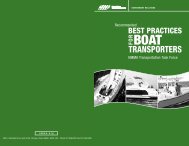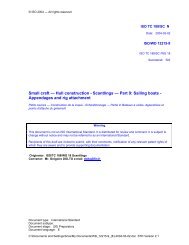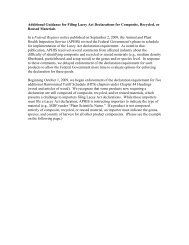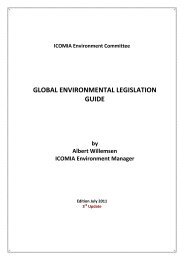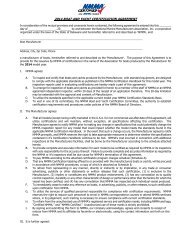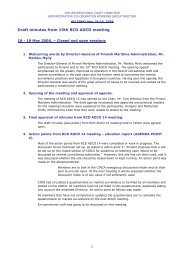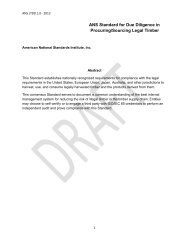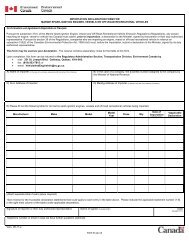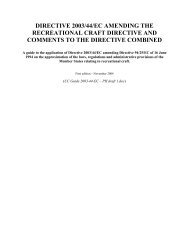Intellectual Property Protection and Enforcement Manual - Ipr-policy.eu
Intellectual Property Protection and Enforcement Manual - Ipr-policy.eu
Intellectual Property Protection and Enforcement Manual - Ipr-policy.eu
You also want an ePaper? Increase the reach of your titles
YUMPU automatically turns print PDFs into web optimized ePapers that Google loves.
Br<strong>and</strong> <strong>Protection</strong> <strong>Manual</strong><br />
Merck & Co., Inc.<br />
Established in 1891, Merck & Co., Inc. (Merck) is one of the world’s leading<br />
pharmac<strong>eu</strong>tical companies. Its mission is to discover, develop, manufacture, <strong>and</strong><br />
market vaccines <strong>and</strong> medicines to address unmet medical needs. Merck is headquartered<br />
in Whitehouse Station, New Jersey.<br />
Counterfeiting <strong>and</strong> piracy mean different things to different companies <strong>and</strong> industries. But to<br />
Merck, these transgressions are particularly egregious because they threaten public health.<br />
Dangers associated with phony products are obvious—particularly since estimates put counterfeits<br />
at more than 10% of all drugs sold worldwide. 1 However, authentic pharmac<strong>eu</strong>tical<br />
products that have been diverted from authorized supply chains can also become unreliable or<br />
unsafe. Such items may have been stored at temperatures that compromise their effectiveness,<br />
are marketed past their expiration dates, or have been repackaged in ways that compromise<br />
sterility or misrepresent their purpose or dosage.<br />
Naturally, counterfeiting <strong>and</strong> piracy have the potential to undermine the pharmac<strong>eu</strong>tical industry’s<br />
profitability <strong>and</strong> market integrity. But the priority of every pharmac<strong>eu</strong>tical entity, including<br />
Merck, is to eliminate the dangers that illegitimate products pose to the health of consumers.<br />
What makes this task so challenging is that bogus pharmac<strong>eu</strong>ticals can reach consumers in<br />
myriad ways. Stolen or counterfeit items are sold on the black market—direct to consumers on<br />
the street corner or through unscrupulous retailers. And bogus Internet pharmacies—as slick<br />
<strong>and</strong> professional as those of a Fortune 500 company—are a fact of 21st century life. Outside the<br />
United States, it is also common for expired products that intermediaries should have destroyed<br />
to turn up at bazaars <strong>and</strong> flea markets.<br />
Illegitimate products can reach the consumer via the legitimate supply chain as well. Ted Fahy,<br />
Merck’s Latin America regional director of global security, explains that distributors, on occasion,<br />
purchase products from secondary wholesalers. And those wholesalers have been known to<br />
acquire, <strong>and</strong> pass on, stolen, fake, or diverted products. In effect, purchasing products outside<br />
the intended channel of trade inadvertently can expose the legitimate supply chain to unauthorized<br />
(stolen or fake) products.<br />
Tackling the Problem<br />
Because the problem is so diverse <strong>and</strong> its consequences so severe, Merck has developed an<br />
aggressive, holistic approach that combines legal <strong>and</strong> law enforcement resources; technology<br />
innovations; business alliances; collaboration with government agencies; quality management<br />
initiatives; educational programs with distributors, retailers, <strong>and</strong> consumers; <strong>and</strong> numerous<br />
levels of physical supply chain security.<br />
1 Source: World Heath Organization Fact Sheet #275 “Counterfeit Medicines,” February 2006.<br />
Page 33



